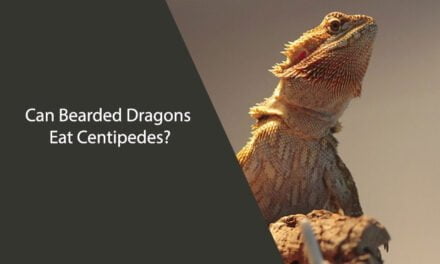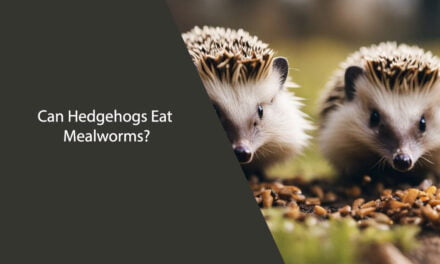Russian tortoises are herbivores and require a balanced diet to maintain their health. As a result, it’s important to ensure that they are consuming a variety of vegetables and fruits. Celery is a popular vegetable that many tortoise owners wonder if their pets can consume.
The short answer is yes, Russian tortoises can eat celery. However, it’s important to note that celery should not be the only vegetable in their diet. While celery is a good source of vitamins and minerals, it is low in calcium, which is essential for the health of tortoises. Therefore, it’s important to provide a variety of vegetables to ensure that they are receiving a balanced diet.
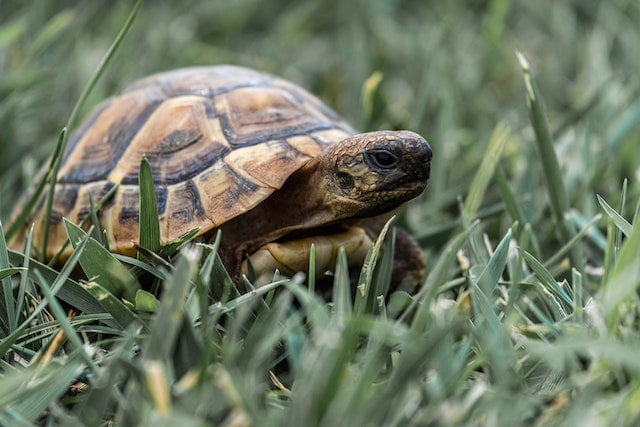
Table of Contents
Understanding Russian Tortoises
Russian tortoises are small, hardy, and easy to care for. They are native to Central Asia and are known for their distinctive appearance and friendly demeanor. As herbivores, they require a diet that is high in fiber and low in protein. In this section, we will provide an overview of Russian tortoises and what you need to know to care for them properly.
Appearance
Russian tortoises are small, measuring between 6 and 8 inches in length. They have a distinctive dome-shaped shell that is brown or yellow in color. Their skin is also brown or yellow, with dark markings on their limbs and head. They have strong, sturdy legs that are adapted for digging and burrowing.
Habitat
In the wild, Russian tortoises live in dry, arid regions with sandy soil. They are adapted to living in hot, dry climates and are able to withstand extreme temperatures. In captivity, they require a similar environment, with access to a basking area and a hide box. They also require a substrate that is easy to dig in, such as sand or a sand/soil mix.
Diet
Russian tortoises are herbivores and require a diet that is high in fiber and low in protein. They should be fed a variety of leafy greens, such as kale, collard greens, and dandelion greens. They can also be fed small amounts of fruits and vegetables, such as carrots, squash, and strawberries. It is important to avoid feeding them high-protein foods, such as meat or dairy products, as these can cause health problems.
Behavior
Russian tortoises are social animals and enjoy the company of other tortoises. They are also active and enjoy exploring their environment. They are not particularly vocal, but they may make hissing or grunting sounds when they are threatened or frightened. They are generally docile and friendly, but they may become aggressive if they feel threatened.
Conclusion
Russian tortoises are fascinating animals that can make great pets. They are easy to care for and require a simple diet and habitat. By understanding their unique needs and behaviors, you can provide them with a healthy and happy life.
Can Russian Tortoises Eat Celery?
We have researched and found that Russian tortoises can eat celery as part of their diet. However, it should not be the main source of their food.
Celery is a good source of fiber, vitamins, and minerals that can benefit the health of Russian tortoises. It is also low in calories, making it a good option for those who want to monitor their tortoise’s weight.
When feeding celery to Russian tortoises, it is important to chop it into small pieces to make it easier for them to eat and digest. It is also recommended to feed celery in moderation, as too much can cause digestive problems.
It is important to note that celery should not be the only food given to Russian tortoises. A balanced diet should consist of a variety of vegetables, such as collard greens, kale, and carrots, as well as fruits and occasional protein sources like insects or boiled eggs.
In conclusion, Russian tortoises can eat celery as part of their diet, but it should not be the main source of their food. Moderation and variety are key when it comes to feeding a healthy and balanced diet to these tortoises.
Nutritional Value of Celery for Russian Tortoises
Celery is a low-calorie vegetable that is rich in nutrients and fiber. It is a great snack for us, but can Russian tortoises eat celery? Let’s take a look at the nutritional value of celery for Russian tortoises.
Vitamins
Celery is a good source of vitamins, including vitamin A, vitamin C, and vitamin K. Vitamin A is important for maintaining healthy eyesight, while vitamin C helps boost the immune system. Vitamin K plays a key role in blood clotting and bone health.
Minerals
Celery is also rich in minerals, such as calcium, potassium, and magnesium. Calcium is essential for strong bones and teeth, while potassium helps regulate blood pressure. Magnesium is important for muscle and nerve function.
Fiber Content
Celery is high in fiber, which is important for maintaining a healthy digestive system. Fiber helps promote regular bowel movements and can prevent constipation.
In conclusion, celery is a nutritious snack for Russian tortoises. It is a good source of vitamins, minerals, and fiber, which are all important for maintaining good health. However, it should be given in moderation and as part of a balanced diet.
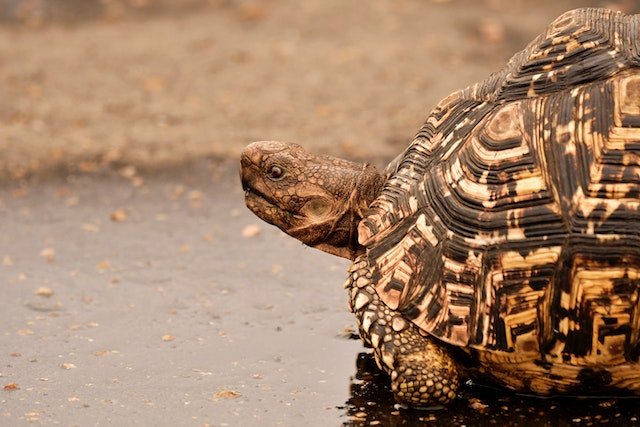
Proper Feeding Guidelines for Russian Tortoises
Feeding Frequency
As responsible pet owners, we must ensure that our Russian tortoises are fed appropriately. The frequency of feeding depends on the age of the tortoise. Younger tortoises require more frequent feeding as they have a higher metabolic rate. Here are some guidelines for feeding frequency:
- Hatchlings and juveniles (up to 4 years old): Feed daily
- Adults (4 years and older): Feed every other day
Quantity of Celery
Celery is a nutritious vegetable that can be included in a Russian tortoise’s diet. However, it should be given in moderation as excessive consumption can cause digestive issues. Here are some guidelines for feeding celery:
- Hatchlings and juveniles: Feed a small amount of celery (1-2 teaspoons) once or twice a week
- Adults: Feed a larger amount of celery (1-2 tablespoons) once or twice a week
It is important to note that celery should not be the sole component of a tortoise’s diet. It should be supplemented with other vegetables and fruits such as kale, collard greens, and strawberries. Additionally, it is important to ensure that the celery is washed thoroughly and chopped into small pieces to prevent choking.
By following these feeding guidelines, we can ensure that our Russian tortoises are healthy and happy.
Potential Risks of Feeding Celery to Russian Tortoises
When it comes to feeding Russian tortoises, it’s important to be aware of the potential risks of certain foods. While celery can be a healthy addition to a tortoise’s diet in moderation, there are some concerns to keep in mind.
Oxalic Acid Concerns
Celery contains oxalic acid, which can bind to calcium and prevent its absorption. This can lead to calcium deficiency, which can cause health problems such as metabolic bone disease. However, the amount of oxalic acid in celery is relatively low compared to other foods, so feeding celery in moderation is unlikely to cause significant problems.
Digestive Issues
Celery can also be difficult for tortoises to digest, especially if it is not chopped finely enough. Large pieces of celery can cause blockages in the tortoise’s digestive system, which can be potentially fatal. It’s important to ensure that any celery fed to a tortoise is chopped into small, manageable pieces.
In addition, celery contains a high amount of fiber, which can be difficult for tortoises to digest in large quantities. Feeding too much celery can cause digestive issues such as diarrhea or constipation. It’s important to feed celery in moderation and to provide a varied diet that includes other types of vegetables and leafy greens.
Overall, while celery can be a healthy addition to a Russian tortoise’s diet in moderation, it’s important to be aware of the potential risks and to feed it in small, chopped pieces.
Alternatives to Celery in Russian Tortoises Diet
Russian tortoises are herbivores and require a varied diet to stay healthy. While celery is a good source of nutrients for them, it’s important to offer a range of foods to ensure they get all the vitamins and minerals they need. Here are some alternatives to celery that you can include in your Russian tortoise’s diet.
Leafy Greens
Leafy greens are an excellent source of vitamins and minerals for Russian tortoises. They are low in calories and high in fiber, making them a great choice for maintaining a healthy weight. Here are some leafy greens that you can offer your tortoise:
- Romaine lettuce
- Kale
- Mustard greens
- Collard greens
- Dandelion greens
- Endive
Vegetables
Vegetables are another important part of a Russian tortoise’s diet. They provide a range of nutrients, including vitamins A and C, and are a good source of fiber. Here are some vegetables that you can offer your tortoise:
- Carrots
- Squash
- Zucchini
- Bell peppers
- Green beans
- Cucumber
Fruits
Fruits should be given to your Russian tortoise in moderation, as they are high in sugar. However, they can be a good source of vitamins and minerals. Here are some fruits that you can offer your tortoise:
- Strawberries
- Blueberries
- Raspberries
- Mango
- Papaya
- Watermelon
Remember to always wash fruits and vegetables thoroughly before offering them to your tortoise. Offer a variety of foods to ensure they get a balanced diet.
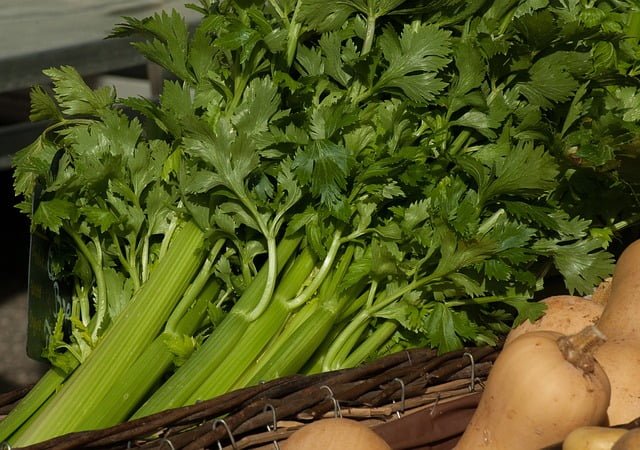
Frequently Asked Questions
What vegetables are safe for Russian tortoises to eat?
Russian tortoises are herbivores and require a diet rich in leafy greens. Some safe vegetables for Russian tortoises to eat include kale, collard greens, mustard greens, and dandelion greens. It is important to avoid feeding them vegetables that are high in oxalic acid, such as spinach and beet greens, as they can interfere with calcium absorption.
Can Russian tortoises eat cabbage?
Yes, Russian tortoises can eat cabbage, but it should only be fed in moderation. Cabbage contains goitrogens, which can interfere with thyroid function in large quantities. It is best to offer cabbage as an occasional treat rather than a staple in their diet.
Can Russian tortoises eat spinach?
No, spinach should be avoided as it is high in oxalic acid, which can interfere with calcium absorption. Instead, offer other leafy greens such as kale or collard greens.
Can desert tortoises eat celery?
While celery is not toxic to desert tortoises, it is not recommended as a regular part of their diet. Celery is low in nutritional value and can cause digestive issues if fed in excess.
Can Russian tortoises eat cucumbers?
Yes, cucumbers are safe for Russian tortoises to eat in moderation. They are a good source of hydration and can be a refreshing treat during hot weather. However, it is important to avoid feeding them too much as cucumbers can have a laxative effect.
What greens are safe for Russian tortoises to eat?
Russian tortoises can eat a variety of leafy greens, including kale, collard greens, mustard greens, and dandelion greens. It is important to avoid feeding them vegetables that are high in oxalic acid, such as spinach and beet greens, as they can interfere with calcium absorption. Additionally, it is best to avoid feeding them vegetables that are high in goitrogens, such as kale and cabbage, in large quantities.


